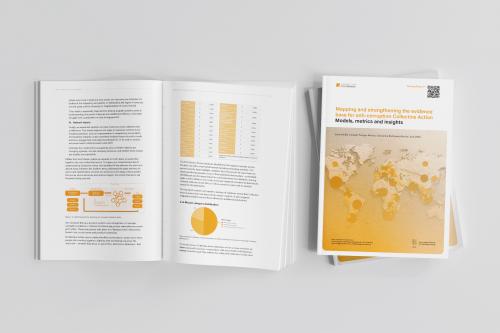What do Bulgarian citizens think about corruption, integrity and anti-corruption efforts?

Bulgarian citizens need no reminding that corruption causes immense social harm, including limiting a country's ability to fight poverty, negatively affecting economic development, rupturing social values and eroding the fundamental principles of democracy and good governance.
But what do they really think about corruption in their country and the Government’s anti-corruption efforts? It is vital to gather evidence on this in order to better shape government anti-corruption policies and communications going forward.
As part of wider efforts to support the Government of Bulgaria’s anti-corruption measures, the Basel Institute carried out a public perception survey together with Global Metrics. The survey reveals that although corruption remains a top public concern in the country, citizens:
- are mostly unaware of any government anti-corruption reform initiatives;
- are not likely to report corrupt behaviour; and
- are increasingly losing trust in the democratic system of governance.
These negative trends, together with the frequent government changes and the critically low voter turnout in the June 2024 parliamentary elections (34 percent), make it imperative for the Bulgarian authorities to institute urgent anti-corruption and integrity reforms and to better communicate to citizens how they are working to address corruption in the country. Such communication is critical for building and sustaining trust in public institutions and the democratic process in the country, for demonstrating that reform can actually be achieved in this area and for actively engaging citizens in the fight against corruption.
Corruption remains a primary concern
Three years after tens of thousands of dissatisfied citizens flocked to the streets of Bulgarian cities to demand anti-corruption reforms, Bulgaria heads to its seventh parliamentary election on 27 October 2024. Corruption remains a top concern for Bulgarian citizens, according to the 2024 report on “Public attitudes towards corruption in Bulgaria and the anti-corruption actions of the Bulgarian Government”.
The 2024 survey found that corruption is among the top three most important problems facing Bulgaria for more than 70 percent of Bulgarian citizens. A quarter of respondents ranked it first. Low incomes and political and state governance were among the other most pressing problems identified.
Bulgarian citizens also overwhelmingly believe that corruption is widespread among high-ranking public officials, with almost 72 percent of the respondents stating that either most or almost all high-ranking public officials in Bulgaria are involved in corruption.
The importance of instituting and communicating reforms
The majority of Bulgarian citizens still see anti-corruption reforms as vitally important and expect the Bulgarian Government to deliver on an anti-corruption agenda. So, it is essential for the authorities to implement urgent reforms to combat corruption and strengthen integrity. The Government also needs to adequately communicate these reforms to citizens in order to galvanise their support, engage them in the reform agenda, and build and retain their trust.
The survey data also suggests that respondents were more likely to be willing to report corrupt behaviour if they were exposed to media reports about effective government actions against corruption. And yet, the 2024 findings show that more than half of the respondents could not name a single anti-corruption effort of the Bulgarian Government.
Convincing a majority of the population that change is possible needs constant and evidence-based communication, awareness raising and information campaigns.
Reforms despite political instability
Despite going through a period of extreme political instability and six snap elections in the last two and half years, Bulgaria has made progress in strengthening capacity to tackle corruption, particularly in the area of legislative reforms and galvanising bottom-up support for integrity reforms from the business sector. These improvements demonstrate that it is possible for political rivals to coalesce around common anti-corruption and integrity policy priorities.
The European Commission decisions to end the cooperation and verification mechanism (October 2023) and to authorise Bulgaria’s partial entry into the Schengen area (March 2024) also recognised that some progress has been made on rule of law and anti-corruption reforms.
If continued reform efforts are combined with thorough citizen engagement, there is hope that Bulgaria’s anti-corruption and integrity progress may also be reflected in future perception surveys, in day-to-day business and politics and, most importantly, in an improvement in the daily lives of Bulgaria’s citizens.
Learn more
The Basel Institute has provided technical support on integrity issues to the Government of Bulgaria since 2022. Through our current programme this support has included, among other topics, the development of the Government’s capacity to communicate on corruption issues through the design and launch of a Public Integrity Campaign based on data from public opinion surveys, media sentiment analysis and focus group research conducted in partnership with the Institute. The programme is funded by the Swiss Agency for Development and Cooperation (SDC) and USAID.



